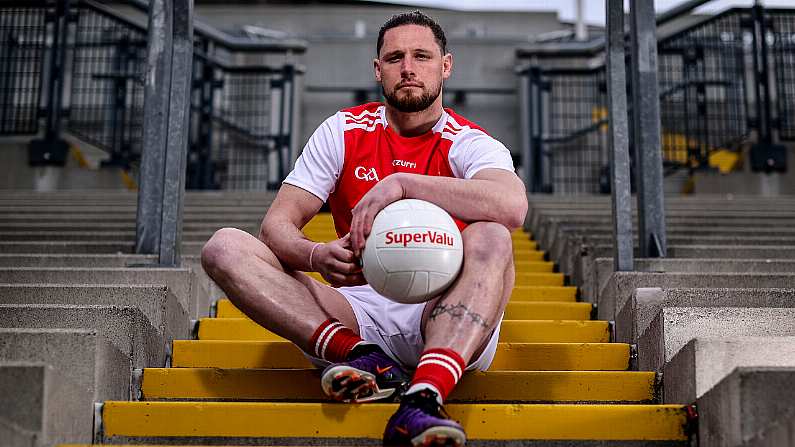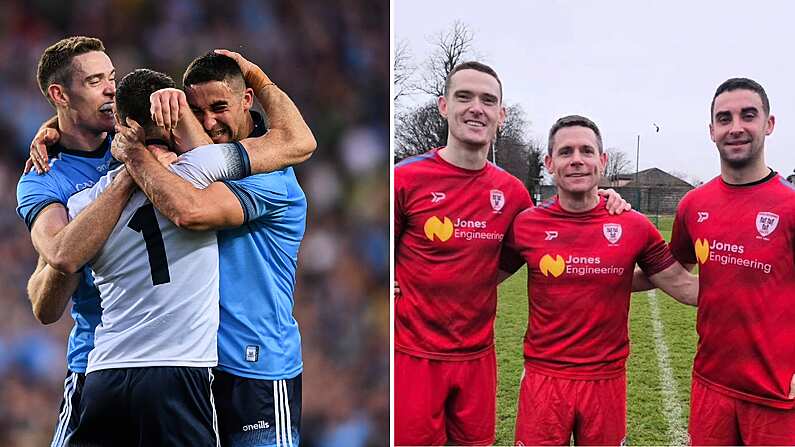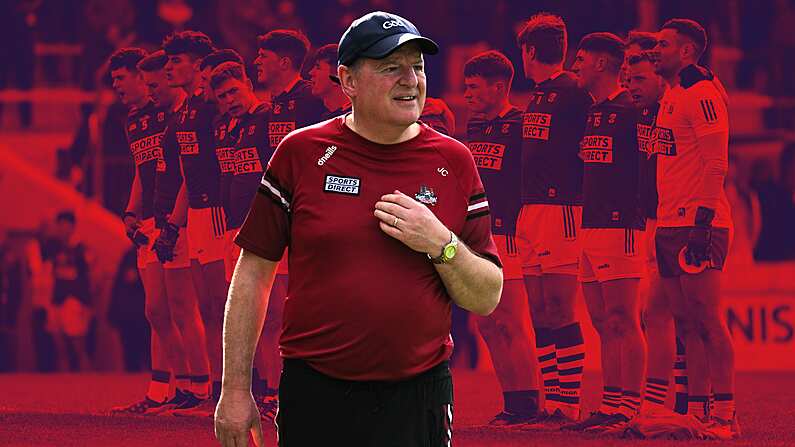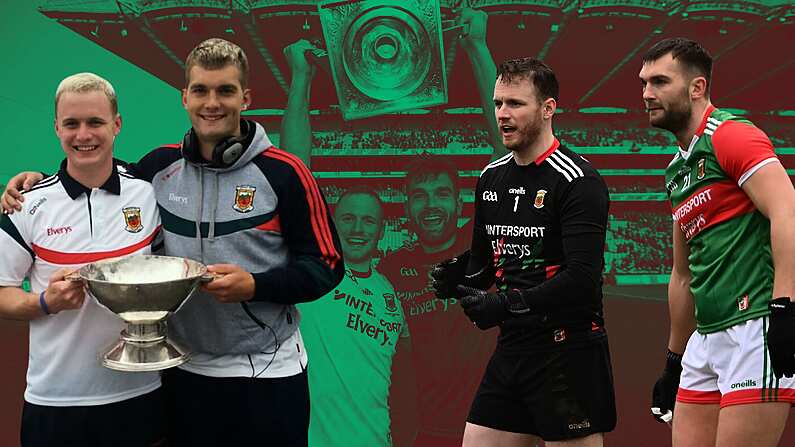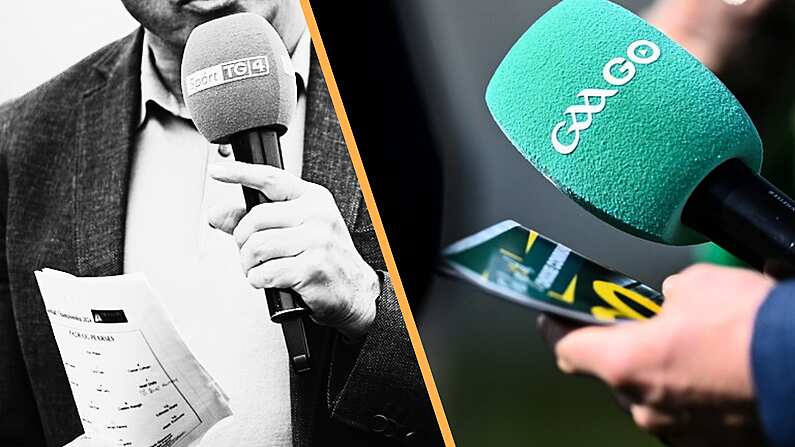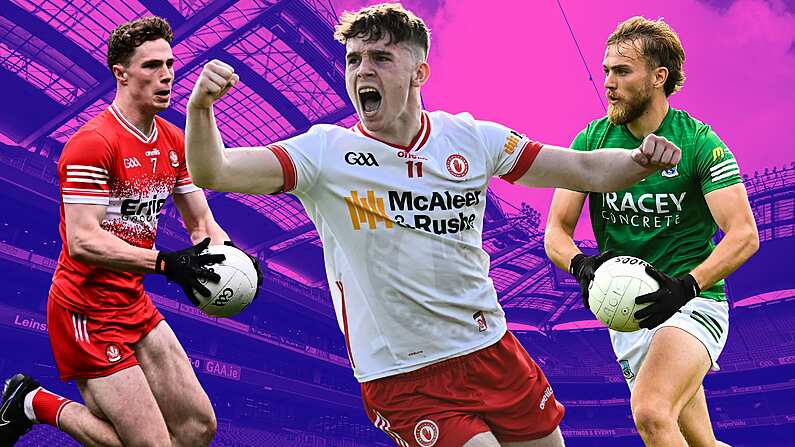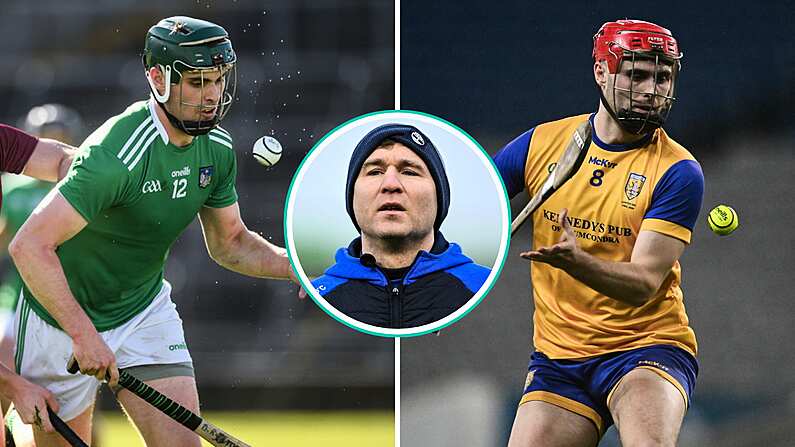For Padraig O'Hora, the opportunity to work in community-based programmes is more rewarding than anything he could expect on a football pitch.
The Mayo back works with the Mayo Mental Health Association, as well as a number of youth support groups in his home county, and he says he finds it an immensely powerful experience to help those who have run into trouble in their teen years.
That brings me into a realm of young people who would be involved in offending and I’m basically trying to support them, get them straightened up, help them see a different lease of life. All them young people have challenges in their life, nobody is straightforward.
We try and be that positive role model and help them see the other side of life and the opportunities that are there. I’m blessed because I’m a Gaelic footballer so they know me and it gets me in the door and gets things going. It’s just another positive, I suppose, of playing football.
O'Hora knows full well the value of such services, having leant on the shoulder of supportive mentors when he himself fell into trouble at a young age.
The Ballina Stephenites man was one of the GAA superstars rolled out to help launch SuperValu's #CommunityIncludesEveryone campaign at Croke Park on Tuesday and told Balls.ie about the role that community organisations played in turning his life around in his late teens.
READ HERE: David Clifford Reveals One Aussie Rules Law He Would Bring Into GAA
READ HERE: Sam Maguire Cup Permutations: 3 Spots Left Heading Into Decisive Weekend
Padraig O'Hora: "I don't think I could ever give as much as I got"
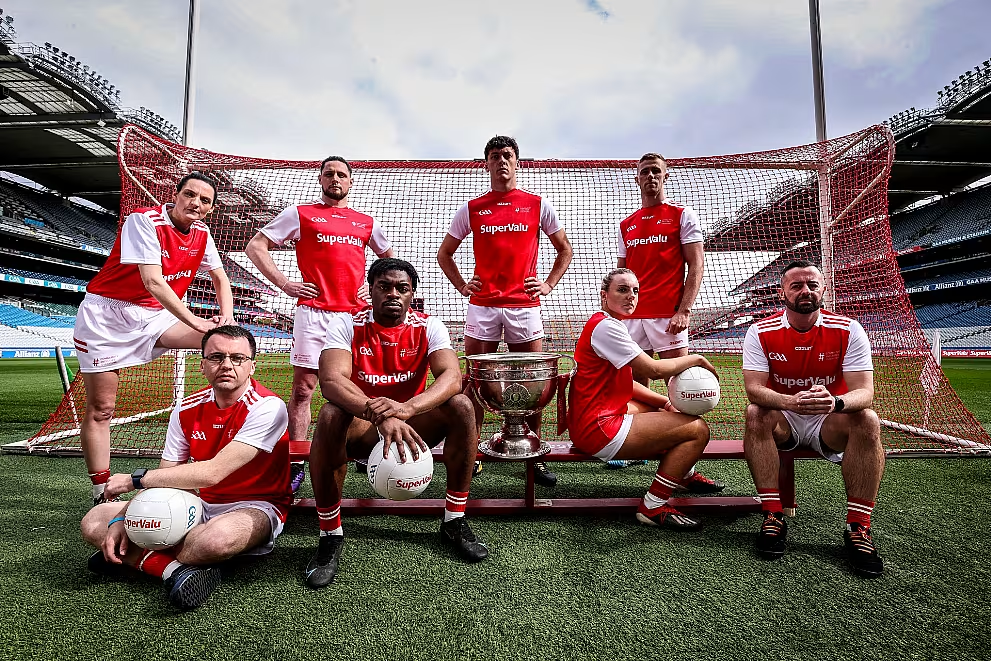
Pictured is 2023 Footballer of the Year David Clifford, Mayo footballer and autism advocate Padraig O’Hora, seven-time All-Ireland winner and Dublin footballer Paul Mannion, Clare footballer Ikem Ugwueru, Emma Cleary of the Cork Ladies Football Team, GAA referee Maggie Farrelly, LGBTI+ community advocate and referee David Gough and Tipp FM commentator and autism advocate Kevin Hanly. Sponsors of the GAA All-Ireland Football Championship for a fifteenth consecutive season, SuperValu were joined by Gaelic Games role models and advocates from across the country in Croke Park today to highlight the role of GAA communities in making Ireland a more diverse, inclusive and welcoming country for all. Photo: INPHO/Dan Sheridan
O'Hora has been candid in the past when discussing his mental health struggles, and spoke on Tuesday about the issues he had faced with "giddy" behaviour as adulthood approached. He says that, after running into trouble with the Gardaí, he was told by a Juvenile Liaison Officer to devote his time to the GAA, something he says set him back on the right path:
I know the GAA had a big part to play in it because it kept me honest, it kept me straight. Friday night might only be Friday night whereas, if football wasn’t there, it might have been Friday-Saturday-Sunday-Monday.
The one real piece I can remember, one of the biggest turning points - I’ve talked about it briefly before - was when I got in trouble with the Guards. I went in to see the JLO, the Juvenile Liaison Officer, the person that I now work with to support the young people! I went in and sat with my mam in front of him.
He just said, ‘This is your last chance, otherwise you could end up in big trouble. There’s two paths here, Padraig.’ He says, ‘Football. Stay in football. See the club above there, stay in football. Keep playing your football, keep out of trouble, and you’ll be alright. If you end up in front of me again, it’s going to be a different story.’
I recall that really, really well. We won a county title this year and myself and himself were arm-in-arm 16 years later. Maybe if that intervention wasn’t there, who knows.
It is a powerful story about the pivotal role the GAA plays in local communities, and O'Hora is eager to impress those same values on the next generation of teenagers.
Even with the weighty subject matter, O'Hora shows that he is always able to have a laugh at his own expense, as he shares a hilarious quip about a further experience with that same JLO:
I did put him down as a reference for my job, when I went for it. My now-boss said, ‘oh, what’s the story here, I know this man well, sure he’s the JLO!’ I say, ‘I know you do, yeah.’ He goes, ‘What’s your interaction with him, have you worked together?’ I said, ‘No, I got arrested years ago and sat in front of him!’ You may as well be honest, I suppose!

21 April 2024; Padraig O'Hora of Mayo before the Connacht GAA Football Senior Championship semi-final match between Roscommon and Mayo at Dr Hyde Park in Roscommon. Photo by Piaras Ó Mídheach/Sportsfile
Speaking on the role of local clubs in communities, O'Hora says that the experience of lining out for a club could be what saves a young person from going down that wrong path, just as he credits it with doing for him.
My mother said a long time ago and it took me a long time to understand what she meant, ‘Show me your company and I’ll tell you who you are.’
If you can get involved in a club, you might be from a tough part of the neighbourhood, maybe you’ve grown up with certain family members who are involved in stuff they shouldn’t be or people who live around you.
But if you’re going over and back to that club, you’re meeting them young lads. Then they become your friends, they become your group, and they’re the lads you grow up with. All of a sudden, they’re the people that are impacting your life.
They’re the decisions you’re making, and you’re not going out acting the fool where you would have been with other bucks. Now you’re in this group of lads who are too busy worrying about recovery and nutrition and training.
All of a sudden, your life goes in a completely different direction.
O'Hora came off the bench for Mayo in their nervy Connacht SFC semi-final win over Roscommon, as he continues to recover from ankle surgery he underwent at the end of last year.
He says that the competition for places in the Mayo defence can only be a good thing and that players "have to" relish the fight for their place in the starting 15.
It's clear from talking with O'Hora, however, that his work in the local community in Mayo is what's most important to him, and that he is grateful for the opportunity to give back to the people who helped him along the road years ago.
I absolutely love it. I said this before, though, people will always pat you on the back and say, ‘Jesus, you’re great for giving back, you’re involved in X and Y.’ It’s a two-way street.
I have given no more than I’ve got and, to be honest, I’ve probably given less. I don’t think I could ever give as much as I got.
People came into my life and they helped me, they put an arm around me at the right time and they pushed me in the right direction.
Even now, they still do, because I’m supporting people in that community.They give me just as much back, the same with all the autism and neurodivergent services. I learned more from members of that community than I could ever ask for.
Featured image: INPHO

